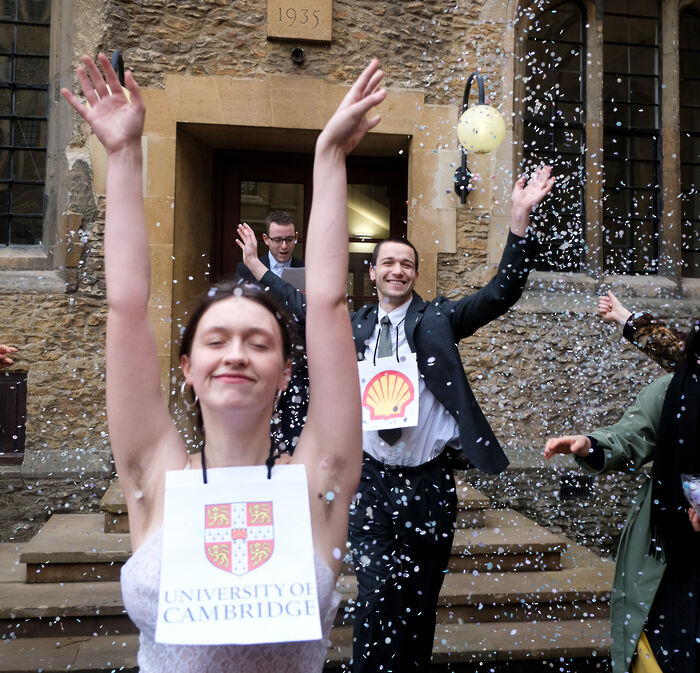University Council set to take divestment decision
Senior figures will discuss a report produced by the divestment working group, amid a divestment petition launched by Zero Carbon

The University Council appears set to take a significant decision on the future of the university’s investments in fossil fuels at a meeting next week, according to an announcement made today.
At present, the University holds some direct investments in fossil fuels industries, which it has consistently described as “negligible”. Its indirect investments – those managed externally – came under scrutiny following last November’s Paradise Papers revelations, which disclosed investments totalling £1.3m in private equity firm Coller International, which are channelled principally to oil and gas company Royal Dutch Shell. With regards to its indirect investments, the University has maintained it has no holdings in tar sands, but some in thermal coal companies, which it has also claimed to be “negligible”.
Cambridge’s Zero Carbon Society said that its members spoke with vice-chancellor Stephen Toope today, ahead of a meeting of the Cambridge University Council on Monday 23rd April, which will see discussion of the report submitted by the University’s working group on divestment.
At his meeting with Zero Carbon, Toope was said to have “acknowledged both the urgency of the issue and the strength of feeling, and agreed that divestment will remain a crucial issue until the final decision is made.”
A petition was also launched this morning, on 16th April, for students and alumni of the University to sign in order to “pledge their support for full divestment from fossil fuels.” At the time of writing, it had nearly 700 signatures.
The divestment working group was established in May 2017, “following interest from the wider University, to consider the question of divestment from businesses involved in fossil fuel extraction.” The group’s ultimate aim was to publish a report that would help the highest levels of Cambridge leadership decide the University’s divestment trajectory. In October, the working group held an open ‘town hall’ meeting where members of the University were encouraged to share their thoughts on divestment with the working group, with contributions from academics, as well as Zero Carbon and Cambridge Defend Education.
Student campaigners from Zero Carbon have escalated action in the last term to protest the University’s continued investment in fossil fuels, culminating in one of their largest ever marches in March, which saw a turnout of 359 staff and students.
Also in March, Alice Guillaume, a student representative for Zero Carbon on the University’s divestment working group, resigned in protest at its draft report. She wrote in Varsity that the report “fails to address the urgency of climate change and the injustices it engenders,” and, furthermore, failed “to make any substantial commitments.”
The group recently staged a number of public stunts to draw attention to the University’s continued investment in fossil fuels, from a mock ‘wedding’ of the University to Shell, to a banner drop at the annual Oxford-Cambridge Boat Race. They stated that “this escalation is set to continue until the University commits to divestment.”
Commenting on the meeting today, CUSU president Daisy Eyre told Varsity: “CUSU urges the University Council to listen to the voices of its members – both staff and students – and fully divest from fossil fuels. With climate change destroying the lives of people across the planet, we hope that our University will take the lead by making this historic step.
“We welcome the fact that the Vice Chancellor has met with representatives from Zero Carbon, showing, we hope, that he is listening to students on this issue.”
When asked whether escalating Zero Carbon action would influence Toope’s willingness to work with students towards divestment, a University spokesperson told Varsity: “The vice-chancellor believes that communications with students on issues of concern is always valuable.”

 Comment / Cambridge’s tourism risks commodifying students18 April 2025
Comment / Cambridge’s tourism risks commodifying students18 April 2025 News / Cambridge student numbers fall amid nationwide decline14 April 2025
News / Cambridge student numbers fall amid nationwide decline14 April 2025 News / Greenwich House occupiers miss deadline to respond to University legal action15 April 2025
News / Greenwich House occupiers miss deadline to respond to University legal action15 April 2025 Comment / The Cambridge workload prioritises quantity over quality 16 April 2025
Comment / The Cambridge workload prioritises quantity over quality 16 April 2025 Sport / Cambridge celebrate clean sweep at Boat Race 202514 April 2025
Sport / Cambridge celebrate clean sweep at Boat Race 202514 April 2025






